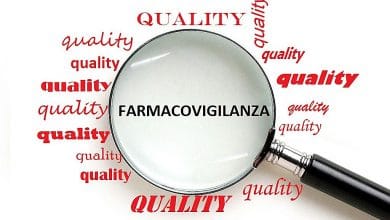
Riportiamo il dibattito che si è aperto sul sito Facebook di Sergio Cardinali della Filctem CGIL
Recently, on the issue of work/worker, the role played by the trade union has been called into question, which has preferred the path of concertation to sign contract renewals, rather than concentrating its activity on defending workers' rights, and in the specific case of the ISF, to safeguard a role that the law describes as of public utility.
However, if we hope for a turning point in the development of industrial relations, we cannot fail to di photograph and analyze the current situation of the pharmaceutical.
 As we know there has been a dramatic downsizing in headcount numbers.
As we know there has been a dramatic downsizing in headcount numbers.
There are many causes, the most important of which is the fact that many companies, especially multinationals, have directed their development, research and marketing plans in a super-specialist direction with the gradual but progressive abandonment of basic medicine. Secondly, because other professional figures, such as local doctors, and to a minimal extent key accounts, have joined the ISFs, often taking over their skills and role.
All this has led to a drastic change in the organizational models of the companies and I am simply referring to the number of personnel (the lines of scientific information) without going into the merits of the technical issues of the role, the specific skills required by law and by the contracts which in any case represent an important part of the general problem, which should be explored and discussed.
Furthermore, we must also highlight that a large part of the ISF are employed in an "emerging" sector which is that of nutraceuticals.
In this case, the first consideration to be made is that if these products are drugs, whoever promotes them plays the role of ISF and as such must be subject to law 219/06.
A different contract from that of the chemist, in which the figure of the ISF is declared according to the criteria of the law (even if some recent modifications have been criticized because they are commercial in nature), can still be used as long as it does not conflict with the law itself. In my opinion this is the first big problem to solve considering the rapid and continuous growth of the sector.
What is certain is that, in any case, the role of the ISF should be re-discussed at the trade union table among all the interested parties both to stem the continuous losses and the continuous orientation of the profession towards an increasingly commercial role. Furthermore, as mentioned, the development of a sector similar to the pharmaceutical sector must be taken into account in order to ensure that the role of the informant is more congruous with the needs of that sector in compliance with the conditions imposed by law.
Mirko Ferrarini
Dearest Mirko, we are preparing to renew the Contract in the coming months. This renewal is loaded with many economic expectations for a relaunch, the theme of generational turnover, the enhancement of sector relations on the subject of safety, the environment and training, above all the organizational changes due to the innovation introduced by industry 4.0.
Il confronto non potrà non affrontare i temi legati al ruolo dell’informazione scientifica del farmaco. Tutti i temi riguardano la salvaguardia del lavoro, ma ognuno di essi include necessariamente la tutela dei lavoratori. Un esempio l’accordo Tris prevede il  prepensionamento di 5 anni per i lavoratori del settore che vanno in pensione prima, e servirà all’ingresso di giovani disoccupati.(lavoro e lavoratori). L’Aifa propone di rivedere le linee guida dell’informazione scientifica e coinvolge le associazioni delle aziende e la Filctem chiede all’Aifa di essere ascoltata partecipando e portando il punto di vista dei lavoratori. Come vedi Mirco ci stiamo provando e non molliamo di un millimetro.
prepensionamento di 5 anni per i lavoratori del settore che vanno in pensione prima, e servirà all’ingresso di giovani disoccupati.(lavoro e lavoratori). L’Aifa propone di rivedere le linee guida dell’informazione scientifica e coinvolge le associazioni delle aziende e la Filctem chiede all’Aifa di essere ascoltata partecipando e portando il punto di vista dei lavoratori. Come vedi Mirco ci stiamo provando e non molliamo di un millimetro.
Il compito è sicuramente difficile e risente di molteplici ostacoli….. ma dobbiamo procedere con determinazione e senza indugi nell’attività messa in campo da circa due anni, a valle del rinnovo precedente, facendo valere le ragioni del sindacato, dei lavoratori e soprattutto dei cittadini italiani che sono i veri fruitori dell’eventuale cambiamento del sistema che non può essere considerata solamente materia economica per le aziende del settore ma anche valore per le nostre comunità, ridando centralità ad una figura ETICA dell’informazione scientifica.
Sergio Cardinali – Filctem CGIL
Caro Mirko, la tua analisi, ancora una volta, è impeccabile. Personalmente, negli ultimi tre anni, mi sto prodigando nel far passare il concetto secondo il quale chiunque vada dal medico a presentare le caratteristiche di qualsiasi tipo di prodotto che poi il medico consiglia al paziente, deve essere un informatore scientifico secondo i canoni dettati dalla normativa vigente.
Allo stato attuale, essendo stato sempre assente il controllo da parte degli organi preposti (AIFA e Ministero della Salute) ci troviamo nella condizione di vedere questa professione esercitata da ragazzi senza laurea o con una laurea diversa da quella indicata dalla 219/2006. Tuttavia non possiamo non tenere conto che, laurea o meno, questi ragazzi sono dei lavoratori che vanno oggi tutelati tanto quanto gli altri. Andrebbe fatta una sanatoria simile a quella messa in atto nel 92/93 ma dopo deve essere chiaro che la legge DEVE essere rispettata.
 In questo senso riconosco alla Filctem-CGIL un grande impegno in vista dell’imminente rinnovo contrattuale. A quanto affermato da Sergio Cardinali, fautore instancabile di questo ripristino della legalità, aggiungo una mia considerazione: l’AIFA dovrebbe occuparsi di rispetto delle regole e quindi dell’etica nel Servizio Sanitario per cui dovrebbe confrontarsi, più che con le aziende, che hanno un evidente interesse più verso l’aspetto commerciale, con le organizzazioni sindacali e di categoria. Le prime perché sono quelle che si occupano di lavoro e di lavoratori, quindi anche di regole di ingaggio, le seconde perché sono quelle che da sempre si occupano di difesa dell’etica e della deontologia della professione dell’ISF, ma soprattutto della difesa del diritto costituzionale alla cura del cittadino.
In questo senso riconosco alla Filctem-CGIL un grande impegno in vista dell’imminente rinnovo contrattuale. A quanto affermato da Sergio Cardinali, fautore instancabile di questo ripristino della legalità, aggiungo una mia considerazione: l’AIFA dovrebbe occuparsi di rispetto delle regole e quindi dell’etica nel Servizio Sanitario per cui dovrebbe confrontarsi, più che con le aziende, che hanno un evidente interesse più verso l’aspetto commerciale, con le organizzazioni sindacali e di categoria. Le prime perché sono quelle che si occupano di lavoro e di lavoratori, quindi anche di regole di ingaggio, le seconde perché sono quelle che da sempre si occupano di difesa dell’etica e della deontologia della professione dell’ISF, ma soprattutto della difesa del diritto costituzionale alla cura del cittadino.
As FEDAIISF, you know, we are strongly committed and aiming towards the legal recognition of our profession which would put an end to the commercial havoc of the figure of the scientific informant. My personal opinion is that in a virtuous system for scientific information, there should be discussion and close collaboration between institutions of the Health Service (AIFA and the Ministry of Health), trade unions, the Order of Doctors, trade associations (FEDAIISF, the only one existing) and business associations. As long as we are excluded from the decisions, there will always be the suspicion (or the certainty) that some mess-ups have taken place.
Antonio Mazzarella – President Fedaiisf
Related news: È meglio difendere il Lavoratore o il Lavoro? (Di Antonio Giammei)
Riflessioni sul tema se è meglio difendere il lavoro o il lavoratore (di Francesca Boni)





